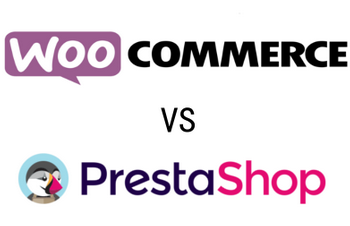
Given the different rapid website creation solutions that exist, it is often difficult to know which platform to choose? Which platform best meets their needs. For the design of e-commerce sites exist, among which the popular WooCommerce and PrestaShop. Addressing the WooCommerce vs PrestaShop question is a legitimate question. Actually, each solution promises the success of your store. We tell you everything in this article. To go further, you can consult our WooCommerce vs Magento comparison.
Differences between WooCommerce and PrestaShop
Similar purpose platforms, we will rate Woocommerce and PrestaShop on several very relevant criteria.
Product management
Unlike WooCommerce which derives from WordPress, PrestaShop is mainly made for the creation and management of online store. As a result, management is much more intuitive than on WooCommerce. That’s not to say that WooCommerce isn’t worth the effort, but you’ll just find it more difficult.
Customization options
Very relevant parameter of the WooCommerce vs PrestaShop comparison, the customization options. These options will allow you to personalize your store, distinguish it from those of your competitors and also improve the experience of your visitors and customers. Like WordPress, WooCommerce benefits from a significant number of plugins for adding various features to your site. In addition, being free for the most part will make people happy. Although mostly paid, the modules and templates of PrestaShop will also give you a high level of customization.
WooCommerce vs PrestaShop : SEO
Since WooCommerce is based on WordPress, it benefits from the wide range of SEO plugins offered for the most part free. Although it should be noted that not all plugins are compatible with WooCommerce. As for PrestaShop, the choice of referral modules remains less, especially since it will cost money to acquire the majority.
WooCommerce vs PrestaShop : Performance
warrantOn the same efficient web hosting, the performance of WooCommerce vs PrestaShop appears quite similar. Nevertheless, Woocommerce loses point at this level because the plugin uses the WordPress database to store various data. Thus, the more the store and the number of plugins increases, the functioning of WooCommerce will have a negative impact on the performance of the hosting.